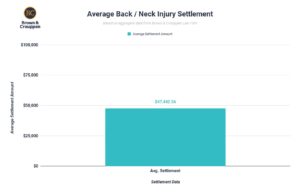Legal Definitions of Elder Abuse and Neglect
How Does the Law Define Elders?
How Does the Law Define Abuse?
Most states have explicit legal definitions of abuse that involve factors like the offender’s intent, the harm the victim suffered, and the nature of the harm. Some states, including Missouri, take it a step further by specifically defining elder abuse. Under Missouri law, “elder abuse” occurs when someone:
- Purposely engages in conduct more than once that causes substantial emotional distress to an elderly person.
- Intentionally fails to provide necessary care, goods, or services to an elderly person in a manner that would reasonably cause physical or emotional distress.
- Knowingly risks an elderly person’s life, body, or health.
Examples of elder abuse and neglect include physical violence, verbal abuse, physical restraints, and neglect of basic needs like food, shelter, and medical care. Financial exploitation, such as scamming or using undue influence to gain control over an elder’s assets, is also considered abuse. Some elder abuse cases also involve sexual abuse, such as non-consensual sexual contact or exposing an elder to sexually explicit material against their will.
What Is the Penalty for Elder Abuse?
Elder abuse is a crime throughout the United States. Some states have stricter penalties for elder abuse compared to abuse toward younger adults. In Missouri, abuse of an elderly person is a class A misdemeanor, the most severe type of misdemeanor under Missouri law. The penalty for elder abuse under this category is up to one year in jail and a fine of up to $2,000. It can be higher if the crime is aggravated.
Laws Protecting Senior Citizens
Nursing Home Elder Abuse Prevention Laws and Regulations
Nursing homes are subject to many state and federal regulations that protect residents from neglect and abuse. These regulations consider things like:
- Care standards
- Training and licensing requirements
- Resident complaint procedures
- Staff-to-resident ratios
For instance, the federal Program of All-Inclusive Care for the Elderly requires a Bill of Rights for eldercare participants. It further outlines standards for businesses that accept Medicare or Medicaid.
Missouri also has a large body of nursing home laws and regulations that complement federal rules. For example, the regulations set minimum staff-to-resident ratios of 1:15 during day shifts, 1:20 during evening shifts, and 1:25 during night shifts for most facilities.
If your family member was harmed because their nursing home ignored federal or state regulations or if you suspect nursing home abuse is occurring, contact our nursing home abuse lawyers for assistance. We can help protect your loved one and their right to compensation.
What Is the Elder Justice Act?
Contact Our Elder Abuse Attorneys Today
Elder abuse is a serious problem throughout the country. If you suspect that your loved one is a victim of elder abuse in Missouri, the legal team Brown & Crouppen can help. Our attorneys have recovered over $1 billion in case results for our clients and are ready to put our extensive resources and experience to work for you and your family.
We believe that elder abuse victims in Kansas City, St. Louis, and throughout Missouri deserve access to the best possible legal representation. Contact us online or call (800) 536-4357 for a free consultation with a skilled elder abuse attorney at our firm. We work on a contingency fee basis, meaning there are zero out-of-pocket fees, and you pay nothing unless we win your case.
Sources
- 208.600. (n.d.). Missouri Revisor of Statutes. https://revisor.mo.gov/main/OneSection.aspx?section=208.600
- 565.184. (n.d.). Missouri Revisor of Statutes. https://revisor.mo.gov/main/OneSection.aspx?section=565.184
- Criminal System. (n.d.). Missouri Sentencing Advisory Committee. https://www.courts.mo.gov/hosted/JUDEDintra/MOSAC/Criminal_System.html
- Department of Health & Human Services (DHHS) & Centers for Medicare & Medicaid Services (CMS). (2011). CMS Manual System. https://www.cms.gov/medicare/health-plans/pace/downloads/r1so.pdf
- MISSOURI. (2015). Compendium of Residential Care and Assisted Living Regulations and Policy: 2015 edition. https://aspe.hhs.gov/sites/default/files/migrated_legacy_files//72981/15alcom-MO.pdf
- The Elder Justice Act. (n.d.). ACL Administration for Community Living. https://acl.gov/about-acl/elder-justice-act






